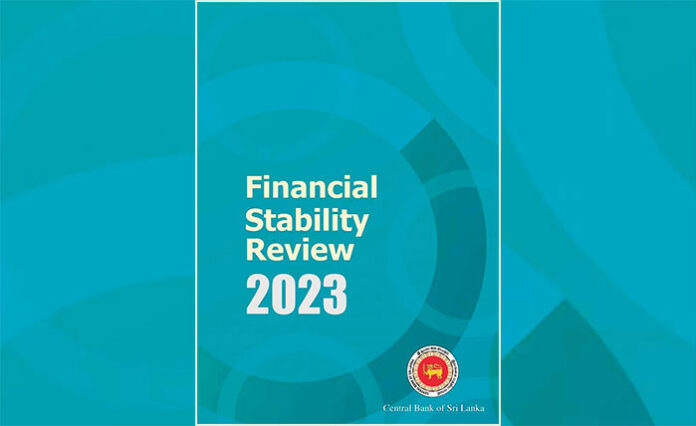By: Staff Writer
January 05, Colombo (LNW): The loans and advances portfolio of the Licensed Finance Companies (LFCs) sector contracted significantly during the year ending Q3 of 2023, particularly due to the restrictions on vehicle imports which affected leasing and hire purchase activities.
Amidst the decline in the core business, the LFCs sector diversified its activities particularly towards pawning/gold loan facilities which heightened the sector’s risk to fluctuations in global gold prices.
The asset quality of the sector also deteriorated as indicated by the increase in stage 3 loans to total loans ratio.
Meanwhile, overall liquidity of the sector remained at an acceptable level while few companies faced difficulties in meeting liquidity requirements. Exposure of the LFCs sector to the sovereign also increased amidst rising investments in Government securities.
Moreover, the sector recorded an increase in profit, driven by higher revenue from interest income and other operating income along with reduced new impairment charges while capital adequacy also improved, with higher growth in regulatory capital compared to subdued growth in risk weighted assets, mainly due to the contraction of loans and advances amidst higher exposure to pawning/gold loans advances and increase in risk-free investments.
Successful implementation of the Masterplan for Consolidation of Non-Bank Financial Institutions (NBFIs) introduced by the Central Bank in the latter part of 2020 helped to build the confidence of the sector. However, the continued need for consolidation exists in the LFCs sector to ensure resilience
The Financial Sector Safety Net Project is designed to boost the financial and institutional capacity of the Sri Lanka Deposit Insurance Scheme (SLDIS), which is managed by the Central Bank of Sri Lanka.
The financing will help boost reserves of SLDIS which could be used towards the payout to insured depositors of banks and licensed finance companies.
In parallel, the project will support institutional strengthening of the SLDIS in line with international good practices for effective deposit insurance schemes.
“Strengthening the financial sector safety net is crucial for maintaining financial stability during a macro-debt crisis,” said Alexander Pankov, Lead Financial Sector Specialist and the Task Team Leader for the project.
“A robust deposit insurance system, along with enhanced supervision and resolution frameworks, will safeguard public confidence in the financial system and protect people’s savings.”
The SLDIS was established in 2010 and has conducted several payouts for failed licensed finance companies in recent years.
Currently, the SLDIS guarantees the deposits of households and enterprises up to LKR 1,100,000, which covers more than 90 percent of deposit accounts in Sri Lanka.
The legal framework for deposit insurance in Sri Lanka was upgraded earlier this year through the approval by Parliament of Banking Special Provisions Act.
SLDIS should now be strengthened institutionally and financially for it to be able to effectively fulfill its legal mandate of protecting the financial sector stability.

